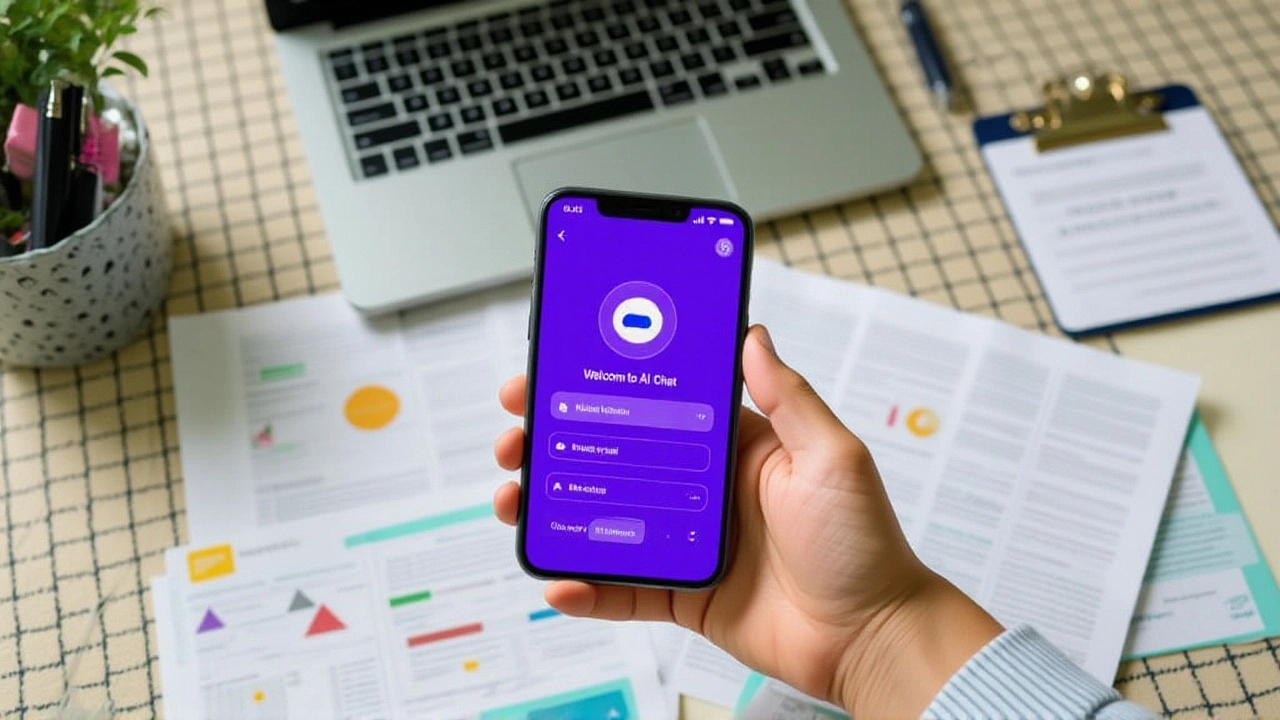On November 17, 2025, at 9:00 AM PST, Google quietly dropped what might be the most disruptive update to online travel since Booking.com went mainstream: Canvas inside AI Mode. Suddenly, planning a trip isn’t about juggling ten browser tabs—it’s about typing, "I want a weekend in Barcelona with good food and museums," and watching a living itinerary unfold beside you. No more copy-pasting hotel links. No more scrolling through endless reviews. Just a clean, visual board—complete with walking routes, restaurant pins, and real-time flight prices—that feels less like a tool and more like a personal travel magazine you built yourself.
From Code Notes to Vacation Boards
Canvas wasn’t always about vacations. It debuted in March 2025 as a workspace for Google’s Gemini AI to lay out coding projects and study schedules. But the underlying tech—dynamic visual collaboration, real-time data stitching, and conversational refinement—was too powerful to lock away in developer mode. The twist? Travel planners were already doing this manually. People spent hours dragging pins on Google Maps, saving screenshots of hotel deals, and pasting restaurant reviews into Word docs. Google just turned that chaos into a feature.
Now, when you ask AI Mode for a "three-day getaway in Lisbon with good food and museums," it pulls flight data from partner airlines, hotel comparisons from Booking.com, Marriott International, and IHG Hotels & Resorts, then overlays photos, reviews, and walking distances from Google Maps. You can tweak it on the fly: "Find me a hotel closer to brunch but farther from the hiking trail," and the whole board rearranges itself. It’s not magic—it’s data. But it feels like magic because it’s intuitive.
Who’s Behind the Scenes?
Google didn’t build this alone. The company announced partnerships with six major players in hospitality and booking: Marriott International, Wyndham Hotels & Resorts, Booking.com, Choice Hotels International, Expedia, and IHG Hotels & Resorts. These aren’t just data feeds—they’re booking integrations. Right now, you can’t book directly in AI Mode. But you can see pricing, amenities, and availability side-by-side. That’s the bait. The hook? Google’s quietly building Project Mariner, its internal codename for end-to-end booking inside AI Mode.
According to TechCrunch’s November 17 report, Google demonstrated agentic booking prototypes for flights and hotels—AI agents that don’t just show options but actively negotiate, compare, and suggest based on your behavior. Imagine saying, "I need a flight to Rome next Friday under $600, with a window seat and no layovers," and the AI finds it, confirms availability, and even offers a $25 dining credit at the airport. That’s the future. And it’s coming.
It’s Not Just About Hotels
While Canvas grabs headlines, Google rolled out two other major updates the same day. First, its AI-powered Flight Deals tool, previously limited to the U.S., Canada, and India, is now live in over 200 countries and supports 60+ languages. That’s not just a feature—it’s a global footprint. Second, agentic restaurant booking, which was locked behind Labs enrollment since August 2025, is now available to all U.S. users. Want dinner at a Michelin-starred spot in Chicago for four on Saturday at 7:30 p.m. with vegan options? Just ask. The AI searches OpenTable, Resy, and local platforms simultaneously, then sends you a curated list with real-time availability.
This isn’t incremental. It’s systemic. Google is stitching together every layer of the travel journey—research, planning, booking, dining, navigation—into a single AI-driven thread. And it’s doing it without asking users to download a new app. Everything lives inside Search.

Why This Changes Everything
The global online travel market is worth $800 billion. Right now, it’s split between Expedia, Booking Holdings, and a handful of niche players. They win because they own the booking flow. Google owns the search. And now, it’s merging the two.
Think about it: when you used to search for "best hotels in Paris," you got a list of links. Now, you get a visual board with photos, prices, reviews, and walking distances to the Louvre—all in one place. And soon, you’ll be able to book it without leaving the page. That’s a death knell for traditional travel sites that rely on click-through traffic. Why go to Expedia when Google already knows your budget, your past trips, your favorite cuisines, and your preferred check-in time?
For consumers, it’s a win. For travel agencies? Not so much. Independent operators who depend on Google traffic for visibility may see their bookings plummet if users start booking directly through AI Mode. Meanwhile, hotels like Marriott International and IHG Hotels & Resorts are betting that Google’s reach will outweigh the commission cuts they’ll pay.
What’s Next?
Google hasn’t said when direct booking will arrive. But insiders suggest it could drop as early as Q2 2026. The company’s already testing it internally. And when it does, expect three things: First, a surge in AI-generated travel itineraries shared on social media. Second, a wave of complaints from users who feel their data is being harvested for personalized pricing. Third, regulatory scrutiny from the FTC and EU regulators over whether Google is leveraging its search monopoly to favor its own booking system.
One thing’s clear: the days of comparing flights on Kayak and hotels on Booking.com are numbered. Google isn’t just making travel easier—it’s making it invisible. You won’t book a trip anymore. You’ll just describe it. And the AI will handle the rest.
Frequently Asked Questions
How does Google’s Canvas travel planner differ from traditional travel sites like Expedia?
Unlike Expedia or Kayak, which show static lists of options, Google’s Canvas creates an interactive visual board that combines flight data, hotel comparisons, restaurant suggestions, and Google Maps walking routes—all in one dynamic workspace. You can refine your plan with natural language prompts, and the entire itinerary updates in real time. It’s not just a search engine—it’s a planning canvas you can edit as you go.
Can I book flights or hotels directly through Google AI Mode right now?
No, not yet. While you can view real-time pricing, amenities, and availability from partners like Booking.com and Marriott, direct booking isn’t live. Google is developing this under "Project Mariner," with internal testing underway. The feature is expected in 2026, but no official launch date has been announced. For now, you’ll still be redirected to partner sites to complete reservations.
Who can access the Canvas travel planner, and where is it available?
As of November 17, 2025, Canvas travel planning is only available on desktop web in the United States to users enrolled in Google’s AI Mode Labs experiment. It’s not yet on mobile or in other countries. Google plans to expand globally in 2026, but no timeline has been confirmed. The feature requires opting into AI Mode, which isn’t enabled by default.
How does Google gather all the data for these visual itineraries?
Google pulls real-time data from its own services—Search, Maps, and Flight Deals—plus partner APIs from Booking.com, Expedia, Marriott, and others. It also scrapes public reviews, photos, and opening hours from websites across the web. The AI then cross-references this with your past travel behavior (if enabled) to prioritize options you’re likely to prefer. Privacy controls allow users to disable personalization, but the system works best with some historical context.
Is the restaurant booking feature available outside the U.S.?
No, agentic restaurant booking is currently limited to U.S. users only. Google expanded it to all U.S. users in November 2025, removing the need for Labs enrollment. International rollout is expected in 2026, likely tied to the global expansion of AI Mode. The feature works with platforms like Resy, OpenTable, and local reservation systems, but only in markets where those services are integrated with Google’s ecosystem.
What’s Project Mariner, and why does it matter?
Project Mariner is Google’s secret initiative to build end-to-end travel booking inside AI Mode—allowing users to search, compare, and complete flight and hotel reservations without leaving the interface. If successful, it could cut out traditional travel platforms entirely, shifting billions in booking commissions from Expedia and Booking.com to Google. The project represents Google’s boldest move yet to control the entire customer journey, from inspiration to confirmation.

Written by Kendrick O'Sullivan
View all posts by: Kendrick O'Sullivan